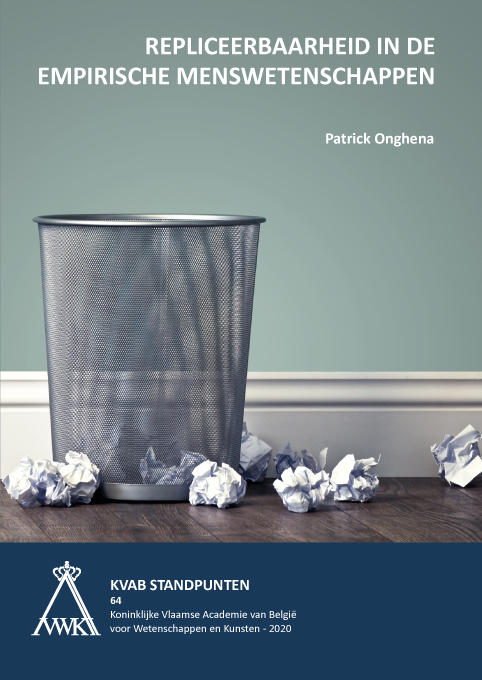Replicability in the empirical social, behavioral, and educational sciences

Position Paper | Year 2020
Replicability in the empirical social, behavioral, and educational sciences
Class of the Humanities
We expect scientific findings to be replicable, i.e. that they can be
repeated by independent researchers in independent follow-up studies. Is
this standard feasible for academic research in the empirical social,
behavioral, and educational sciences? Not always, according to a recent
impressive series of follow-up studies. Findings in these sciences don’t
always appear to hold up in independent follow-up studies. Moreover, if an
effect is found in the follow-up study, it is usually smaller than in the
original study. After fake news, do we now have to put up with fake
science?
In this position paper we take a look at the basic principles and the conceptual framework behind this so-called ‘replicability crisis’. We investigate the antecedents and the possible causes of the limited replicability and discuss the implications for the credibility of the empirical social, behavioral, and educational sciences. On the basis of an analysis of the causes and implications, we endeavour to chart a course through this crisis. As the psychologists say: in every crisis lies the seed of growth. We would like to think that this growth is replicable in the current crisis.
In this position paper we take a look at the basic principles and the conceptual framework behind this so-called ‘replicability crisis’. We investigate the antecedents and the possible causes of the limited replicability and discuss the implications for the credibility of the empirical social, behavioral, and educational sciences. On the basis of an analysis of the causes and implications, we endeavour to chart a course through this crisis. As the psychologists say: in every crisis lies the seed of growth. We would like to think that this growth is replicable in the current crisis.
Available documents
Author
-
Patrick Onghena


